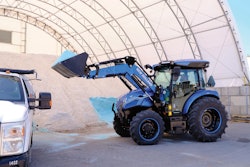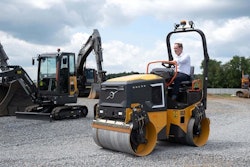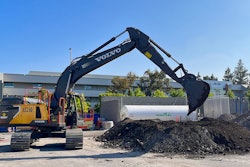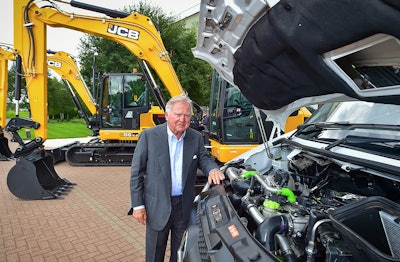
JCB says it has successfully installed one of its hydrogen engines into a Mercedes Sprinter van, extending its sustainable energy technology into the commercial vehicle sector.
The retrofit took two weeks and uses the same internal combustion engine as the JCB’s prototype construction and agricultural machines. The converted van was previously diesel-powered. This is the second vehicle to be modified with a JCB hydrogen engine; earlier this year the manufacturer converted a 7.5-ton Mercedes truck.
JCB Chairman Anthony Bamford, who is leading the company’s $100 million hydrogen engine project, was one of the first to test drive the van.
“We retrofitted this vehicle with a JCB hydrogen engine to demonstrate how simple it will be to convert existing vans and to show that it is not only not only construction and agricultural machines that can be powered by hydrogen,” says Lord Bamford. “While converting vans will not be for JCB to do, it does prove there is something else other than batteries that can work very effectively.”
JCB says the benefits of hydrogen are twofold: it could represent a quicker way to reach global carbon dioxide emissions targets, and hydrogen-powered vehicles can be refueled far less time than it takes to recharge batteries.
In 2015, JCB bought a controlling stake in ITM Power, a manufacturer of hydrogen energy systems and hydrogen fuel cells. Over the past three years, JCB has debuted a hydrogen-powered backhoe loader prototype, a hydrogen-powered Loadall telescopic handler prototype, a hydrogen fuel cell-powered 220X excavator prototype, and a mobile hydrogen refueler.
JCB’s hydrogen internal combustion engines are manufactured at JCB Power Systems in Derbyshire. To date, JCB has manufactured more than 70 hydrogen internal combustion engines in a project involving 150 British engineers.
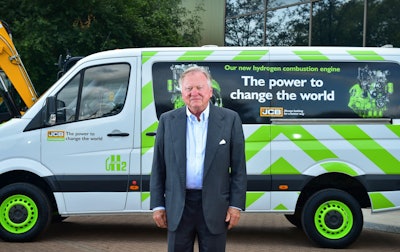 JCB
JCB

